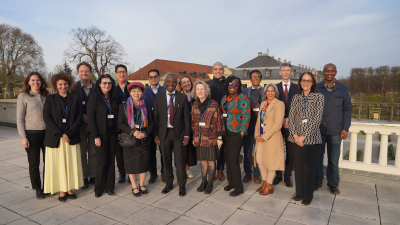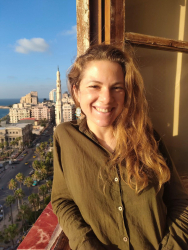


The International Urban Health Summit 2025, an event that brought together more than 350 researchers and experts from 30 countries, concluded today. The Summit held in Hannover, Germany, from 9-11 April is the result of a collaboration between the InterAcademy Partnership (IAP), the global network of 150 academies of science, medicine and engineering, the Berlin-Brandenburg Academy of Sciences and Humanities (BBAW), the Volkswagen Foundation and the International Society for Urban Health (ISUH).
With more than 4.4 billion people living in cities and an urban population estimated to reach 6.7 billion by 2050, the challenges that urbanisation poses to health are complex and significant.
“The majority of the world's population lives in cities, yet attention to urban health has not been a priority for those in public health or medicine until now,” said Jo Ivey Boufford, Director of the Doctor of Public Health Program at New York University and founding board member of ISUH.
"As cities continue to expand, so does the evidence on the importance of social and clinical determinants of health. We hope this Summit will help raise awareness of the interdisciplinary nature of urban health," she continued.
Researchers, practitioners and policy-makers from all corners of the world, including Japan, Sri Lanka, Cameroon, South Africa, Colombia and Jamaica, presented global trends in urbanisation and its challenges, including social density, the growth of mega-cities, pollution, the distress of those living on the margins of society and their isolation.
“Urban health is an issue that brings together several disciplines, from the medical professions to urban planning, via architecture, social sciences and even the arts," added Peggy Hamburg, IAP co-President.
“The scientific academies united under the umbrella of IAP can and should play an important role in promoting a holistic approach in this field,” she emphasised.
This is the starting point of a global project led by an IAP working group to design, including through the use of artificial intelligence, an interdisciplinary programme that will bring together education, transport, social justice and urban health promotion services for a more liveable and resilient city.
Sofia Nitti, IAP Communications Assistant, snitti@twas.org

In 2018, IAP established an Urban Health Working Group (UHWG) to identify ways in which academies can add value to global, regional and national discussions and efforts to improve health in urban populations.
In 2025, the IAP UHWG, composed of about 20 international renowned scientists, has been renewed under the leadership of Dr. Jo Ivey Boufford, Director of the Doctor of Public Health Program and Clinical Professor of Global and Environmental Health, New York University, USA, and former co-chair of IAP-Health (as it was then known).
The working group had a prominent role in the International Urban Health Summit which brings together researchers and practitioners to address key issues of urban health through the lens of the 17 Sustainable Development Goals.